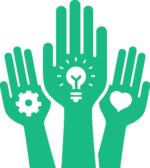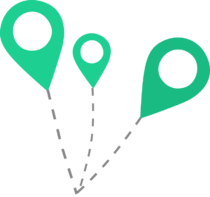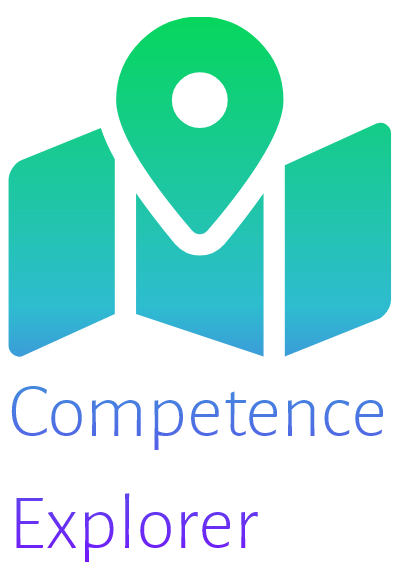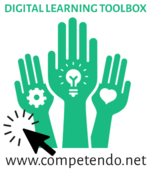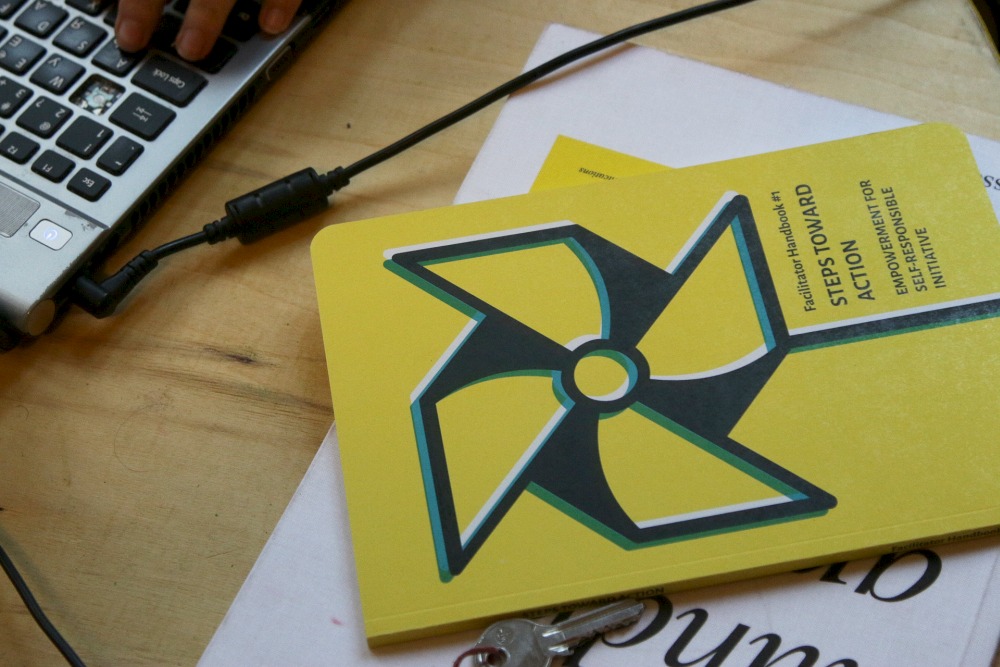|
|
| (361 intermediate revisions by 5 users not shown) |
| Line 1: |
Line 1: |
| − | <div class="left-column-contentinner"> | + | __NOTOC__ |
| − | <div class="teaser-text">This toolbox has the aim to unleash civil initiative with competency based learning approaches. <!--out.png | 400px | right]] --> We think, that learning and education can much more contribute to a better world than they do with a only focus on knowledge dissemination. Education understood as empowerment means to contribute to lifelong learning and to help people to apply their power and skills for something purposeful and for the public good. It is a collaborative task of families and schools, initiatives other organizations providing learning. | + | <div class="methodpage-content"> |
| | + | <div class="teaser-text">[[File:Understanding.png | right | 200px | link=https://competendo.net/en/Understanding]]Competendo is supporting a holistic view on education and learning. A perspective which is giving equal importance to knowledge, practical skills, attitudes and values. Competence-centered facilitation acknowledges that these all play together. Competences help people to integrate what they’ve learned into their lives in complex situations, as active citizens, or use these competences in a context of societal transformation like in the digitalisation or climate crisis. Education that supports agency, autonomy, democratic resilience and change. |
| | </div> | | </div> |
| | + | <div style="float: right; font-size: 150px;color: #1abb83; font-weight:bold;">?</div> |
| | + | ==Democracy- and Human Rights-Related Learning == |
| | + | Education for Democratic Citzenship aims to foster initiative, an active role of an individual in public life (participation). This includes a systematic understanding of how one's individual engagement is connected to the society, the political system, or to complex social challenges. It helps citizens/learners to develop a democratic attitude toward other people and groups and contribute to a peaceful democratic culture. It is necessary to understand and co-create social transitions. |
| | | | |
| | + | This toolbox aims to show how democracy-related educational approaches contribute to modern competence-oriented pedagogy and how modern competence orientation improves democracy-related pedagogy. |
| | | | |
| − | ==Key Aspects==
| + | <div class=left-box> |
| − | Genau, ohne das gehts nicht. Ne geht nicht. Was, aber ging doch immer. nach dem krieg...
| + | ====Glossaries==== |
| − | | + | <i class="fas fa-book" style="font-size: 54px; color: #ccc; float:right;"></i> |
| − | <div class="teaser-box"> | + | <noinclude>{{:Glossaries}}</noinclude> |
| − | ===[[Power | Empowerment]]=== | |
| − | '''Introduction:''' Equip individuals with skills for feeling, using and sharing their influence and power as self-responsible individuals.
| |
| | </div> | | </div> |
| | | | |
| − | <div class="teaser-box"> | + | <!-- |
| − | | + | <categorytree mode=pages>Understanding</categorytree> |
| − | ===[[Competencies]]=== | + | --> |
| − | '''Introduction:''' For applying complex knowledge it is not enough simply to teach it. Competence based learning processes cover the broad range of skills, knowledge and attitudes, which one needs for successful action in a modern society.
| |
| − | </div> | |
| | | | |
| − | ==Learning theory== | + | <hr class=boldline> |
| | | | |
| − | <div class="teaser-box"> | + | ==Articles:== |
| | + | <div class="teaser-box" style="background: linear-gradient(to bottom, white, #DEFCEE);"> |
| | + | ===[[What Competency-based learning is... | Section: Compe­tence Focus]]=== |
| | + | [[File:Competences1.png | 150 px |right | link=What Competency-based learning is... ]] |
| | | | |
| − | ===[[Experiential Learning]]===
| + | The section includes: |
| − | '''Introduction:''' Experiential learning sees learning as a process of individual development, holistic in a sense as it appreciates knowledge, skills and attitudes of learners as relevant. It combines learning opportunities in everyday life, school, and all activities beyond classrooms in the civil society.
| + | * Competence-based learning, |
| | + | * Aspects of experiential learning, |
| | + | * Power and participation, |
| | + | * Motivation and inspiration. |
| | </div> | | </div> |
| | | | |
| − | <div class="teaser-box"> | + | <div class="teaser-box" style="background: linear-gradient(to bottom, white, #DEFCEE);"> |
| − | | |
| − | ===[[ Teamwork and Group Dynamics]]=== | |
| − | '''Introduction:''' Personal cooperation is a management instrument and a learning opportunity for enhancing soft skills. The more diverse groups are, they need to reflect and to apply cooperation models or ways of decisionmaking. These necessary reflections include a more detailed understanding of group processes and team roles.
| |
| − | </div>
| |
| | | | |
| | + | ===[[Digital@Learning | Section: Digital@Learning]]=== |
| | + | [[File:Ballons.png | 210px | right | link=Digital@Learning]] |
| | | | |
| − | <div class="teaser-box">
| + | The section includes: |
| | + | * Digital in the Learning Process |
| | + | * Social, Political, Cultural Background about Digitalisation |
| | | | |
| − | ===[[Communication]]===
| |
| − | '''Introduction:''' Communication skills lead in the best case to understanding, efficiency or appreciation of the involved communication partners. This section introduces models that illustrate conditions for successful communication and offer models for gaining communicative competence.
| |
| | </div> | | </div> |
| | | | |
| | + | <div class="teaser-box" style="background: linear-gradient(to bottom, white, #DEFCEE);"> |
| | + | ===[[Group-related and Interpersonal Aspects | Section: Group and Inter­per­sonal Aspects]]=== |
| | + | [[File:Understanding-groups1.png | right | 150 px | link=Group-related and Interpersonal Aspects]] |
| | | | |
| − | <!--
| + | The section includes: |
| − | <div class="teaser-box">
| + | * Teamwork and Group Dynamics |
| − | | + | * Communication |
| − | ===[[Diversity]]===
| + | * Diversity |
| − | '''Introduction:''' Developing diversity consciousness and managing diversity in groups equips our participants to involve in the society and to shape in general a better quality of participation. This includes work against structural discrimination and under-representation of marginalized groups, fostering those who have not yet developed the capacities to become involved. And last but not least to encourage those people who have already developed these capacities to become advocates for a positive approach towards plurality and equality. </div>
| + | * Conflict Management |
| − | -->
| + | </div> |
| − | <div class="teaser-box">
| |
| | | | |
| − | ==Menschen sind bose==
| |
| − | ===[[Conflict Management]]===
| |
| − | '''Introduction:''' The capacity to conflict resolution influences the quality of collaboration and cooperation in the group in a positive way. With conflict management we improve the quality and efficiency of communication and equip our participants with conflict management skills.
| |
| − | </div>
| |
| | | | |
| − | <div class="teaser-box">
| |
| | | | |
| − | ===[[Understanding: Sources & Glossary]]===
| |
| − | '''Introduction:''' Link yu Glossaren auf externen Seiten
| |
| | | | |
| − | </div>
| |
| | | | |
| | | | |
| | | | |
| | </div> | | </div> |
| − | <div class="right-column-contentinner"> | + | <div class="methodpage-infos"> |
| − | ===What's inside this section?===
| + | <noinclude>{{:Navi: Understanding}}</noinclude> |
| − | * [[Empowerment]]
| |
| − | **[[Power]]
| |
| − | **[[Participation]]
| |
| − | **[[Affirmative Action]]
| |
| − | **[[Cooperative Learning]]
| |
| − | **[[Active Citizenship Education]]
| |
| − | ** [[Citizenship Education: Definitions]]
| |
| | | | |
| − | * [[Competencies]]
| + | <hr class=simpleline> |
| − | **[[Knowledge Society]]
| + | <!-- |
| − | **[[Transversal or Key Competencies]]
| + | ===Competence Navigator=== |
| − | **[[Civic Competences]]
| + | [[File: Competence-navigator-logo.png | link= Competence Navigator]] |
| − | **[[Citizenship Education: Definitions]]
| + | <hr class=simpleline> |
| − | *[[Experiential Learning]]
| + | --> |
| − | **[[Self-Directed Learning]]
| + | <noinclude>{{:Block: Handbooks}}</noinclude> |
| − | **[[Non-linear Learning Progress]]
| |
| − | **[[Circular Learning Model]]
| |
| − | **[[Holistic Learning]]
| |
| − | **[[Learner in the Focus]]
| |
| − | **[[Motivation]]
| |
| − | | |
| − | *[[Teamwork and Group Dynamics]]
| |
| − | **[[Model of group development]]
| |
| − | **[[Belbin Team Inventory]]
| |
| − | ** [[4 Player Model]]
| |
| − | ** Myer Briggs Type Identicator
| |
| − | **NEO Personality Inventory
| |
| − | **Cognitive Style Index
| |
| − | **Motivational Style
| |
| − | **Time Management Styles
| |
| − | ** [[Personality Styles]]
| |
| − | **[[Management styles]]
| |
| − | | |
| − | *[[Communication]]
| |
| − | **[[Interpretation]]
| |
| − | **[[Four Sides of a Message]]
| |
| − | **[[Habitus: Grammar of the social framework]]
| |
| − | **[[Language without words: Body language]]
| |
| − | **[[Powerful Listening]]
| |
| − | *[[Diversity | General Introduction: Diversity]]
| |
| − | **[[Diversity: Definition]]
| |
| − | **[[Diversity Consciousness]]
| |
| − | **[[Interculture and Transculture]]
| |
| − | **[[Anti-Bias and Anti-Discrimination]]
| |
| | | | |
| − | * [[Conflict Management]]
| |
| − | ** [[Conflicts: An Introduction]]
| |
| − | ** [[Conflict Analysis and Prevention]]
| |
| − | ** [[Behavior in conflict situations]]
| |
| − | ** [[Conflict sources]]
| |
| − | ** [[Extended Theory | Conflict Management - Extended Theory]]
| |
| − | * [[Formal, Non-Formal and Informal Education]]
| |
| − |
| |
| − | ===Methods===
| |
| − | * [[Facilitating Competences]]
| |
| − | * [[Doing]]
| |
| − |
| |
| − | <div class="statement-gray-inner">"Feeling, gaining and sharing power."
| |
| − |
| |
| − |
| |
| − | What's empower ment?
| |
| − | </div>
| |
| | | | |
| | </div> | | </div> |








